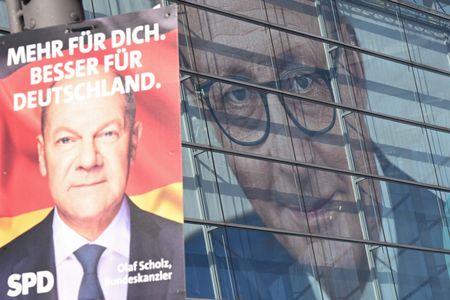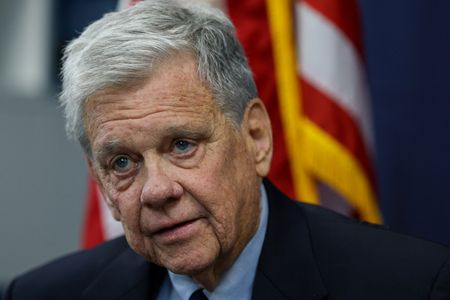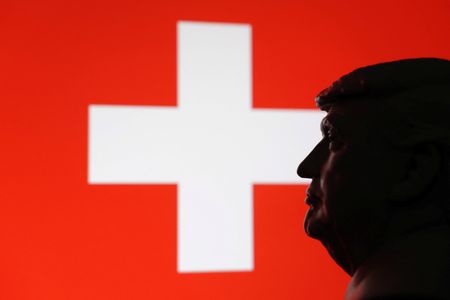By Christoph Steitz and Alexander Hübner
FRANKFURT/MUNICH (Reuters) – German business leaders called for the swift formation of a new government after Sunday’s election, saying Europe’s largest economy could not afford to waste any time as companies suffer from high costs, red tape and rising competition from abroad.
The conservative CDU/CSU bloc won the national election to pave the way for a coalition with the Social Democrats, easing concerns over a more fractious three-way government and prompting the corporate call for the parties to move swiftly.
Still, opposition parties will hold a blocking minority in parliament over more far-reaching decisions, including loosening the constitutionally enshrined debt brake that keeps the country constrained budgetwise.
Germany’s top companies from Deutsche Bank and E.ON to Deutsche Telekom and Siemens Energy have long criticised the government’s lack of action over the country’s prolonged economic weakness.
“We don’t need any further discussions, the problems are well known – we need implementation now,” said Roland Busch, CEO of engineering and industrial giant Siemens.
“Because the rest of the world is not waiting for us – and the pressure to act in Germany, particularly with regard to competitiveness, is enormous,” he said, chiming with comments from other CEOs, including Christian Bruch of Siemens Energy.
Leonhard Birnbaum, CEO of Europe’s largest energy networks operator E.ON, said the country should rely on market forces when it comes to its economy, in a swipe at the government’s interventionist approach in the energy sector.
‘ENORMOUS CHALLENGES’
Germany could see its economy shrink for the third consecutive year in 2025, raising alarm bells among corporate bosses at a time when U.S. President Donald Trump is fuelling a global trade conflict, while Chinese rivals are moving in.
“Germany now needs a government that is able and willing to act – and quickly,” said Christian Sewing, CEO of the country’s largest lender Deutsche Bank and president of its association of banks.
“The challenges facing our country are enormous: The economy urgently needs a fresh start with fundamental reforms.”
A recent survey by the Chamber of Commerce and Industry showed 60% of firms citing economic conditions, including bureaucracy and high labour and energy costs, as the biggest business risks, the highest level ever.
This has fuelled fears of deindustrialisation as companies opt to invest abroad, including in the United States and China, where industrial power costs are less than half the level compared to Germany.
Miguel Lopez, CEO of conglomerate Thyssenkrupp, said Germany had to become attractive again for investors, adding that only then new growth potential could be tapped.
The benchmark DAX index rose following the election, boosted by hopes that a two-party government will be able to take more decisive action on corporate issues, including plans by the CDU to cut corporate taxes to 25%.
“Germany will have a capable and determined government that will tackle the problems – I have no doubt about that,” said Armin Papperger, CEO of Europe’s top ammunition maker Rheinmetall, which has seen its shares rise nearly 10-fold since Moscow’s invasion of Ukraine.
(Reporting by Christoph Steitz, Alexander Huebner, Tom Sims, Tom Kaeckenhoff, Matthias Inverardi and Hakan Ersen; Editing by Kirsten Donovan, David Evans and Hugh Lawson)










